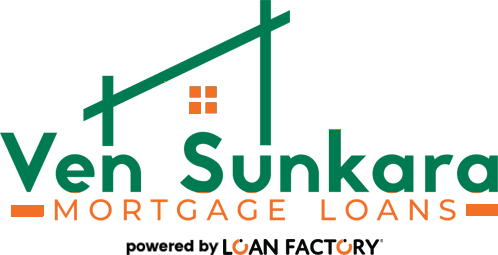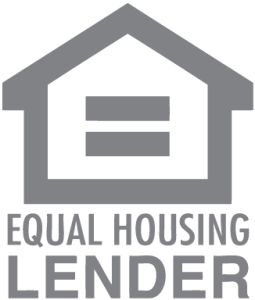Making Your Money Work for You: Understanding Investment Property Financing
If your goal is to earn additional income through a rental property or to buy a property that requires repairs for resale at a higher price, you may need to consider obtaining an investment property loan. Nevertheless, it is important to note that the interest rates on these types of mortgages are often higher compared to those for primary residences, and the eligibility criteria are more stringent.
Being familiar with the details of investment property loan options will assist you in selecting the most suitable mortgage that aligns with your investment objectives in real estate.
What is an investment property loan?
An investment property loan refers to a type of home loan that is used to purchase a property with the intention of generating income. This can involve buying a property to rent out and earn rental income or to renovate and resell for a profit, also known as house flipping. Additionally, there are short-term hard money investor loans available that can be used to purchase properties that you plan to quickly repair and sell.
When applying for an investment property loan, it is generally understood that the property being purchased will be rented out to tenants for rental income, rather than being used as the buyer’s primary residence. Nevertheless, some standard loan programs can be used to purchase multifamily investment homes, as long as the buyer intends to reside in one of the units.
What is an investment property?
If you purchase real estate with the intention of making a profit, it is considered an investment property. This term can refer to various types of properties, from a small condo to a large commercial building in a city. However, for the focus of this article, we will discuss residential real estate loans that provide funding for properties containing one to four units. Residential investment properties may include condominiums, manufactured homes, multi-family homes, and cooperatives.
Investment property loan options
There are several programs to choose from when you’re purchasing investment homes.
- Conventional loans. The only standard loan program that allows you to buy an investment property with no strings attached is the conventional loan program. Unlike with government-backed mortgages, you don’t have to live in the property to qualify.
- FHA loans. You can buy a two- to four-unit home with a mortgage backed by the Federal Housing Administration (FHA) and collect rent on the other units to qualify, as long as you live in one of the units for at least 12 months.
- VA joint loans. This VA multifamily loan program is exclusively for eligible military borrowers. It allows them to buy a property with up to seven units, as long as they live in one of the units. The U.S. Department of Veterans Affairs (VA) guarantees these loans with no down payment requirement.
- Non-QM loans. Borrowers that don’t qualify for any of the programs above may be eligible for a nonqualified mortgage (non-QM) loan based exclusively on the rental income received on the home they’re buying. The down payment requirement and interest rates are higher than with regular loan programs.
- Owner financing. Sometimes sellers are willing to act as a lender and provide temporary financing so you can purchase the home in exchange for a large nonrefundable down payment. Some owner financing arrangements include a balloon payment, which means you’ll have to pay off the entire loan balance within a set period, or the owner takes back the property.
- Home equity loan. If you currently own a home with a good chunk of equity, you can borrow against the equity with a home equity loan or a home equity line of credit (HELOC). With home equity loans and HELOCs, you borrow a portion of your equity and leave your current mortgage loan in place. A home equity loan is paid in a lump sum with a fixed rate, while a HELOC works more like a credit card that you can use and pay off for a set time.
- Cash-out refinance. A cash-out refinance is when you take out a mortgage for more than you owe and pocket the difference in cash, which can be used to purchase an investment property.
- Hard money loans. These loans are more common for flipping investors — hard money investors are willing to lend you money knowing you’ll pay it off quickly. However, you’ll often need at least a 25% down payment and will pay high rates and upfront points. And it’s not uncommon for there to be a prepayment penalty.
Minimum requirements for investment property loans
Lenders consider investment property lending riskier than lending on a primary residence. As a result, the qualifying rules require you to show more financial stability. Requirements unique to investment property loans include:
- Higher down payments. You can purchase a multifamily home with an FHA or VA loan with only 3.5% if you intend to live in one of the units. Although conventional guidelines permit down payments as low as 15% for rental homes, most lenders require at least 20%. And the money must be all yours — gifts aren’t allowed when buying a rental home with conventional guidelines. However, down payment gifts are allowed for VA and FHA multifamily home purchases.
- Reserves. More commonly called “mortgage reserves,” these are monthly payments the lender wants to see in the bank. The amount usually equals two to six months’ worth of mortgage payments, depending on how many properties you own.
- Proof of rental income. The lender may require copies of current leases, a rent roll history and tax returns showing rental income. In most cases, the appraisal will also include an analysis to confirm what similar properties rent for in the neighborhood.
- Using rental income to qualify. Lenders may allow you to add the actual or estimated rental income from the home you’re buying to qualify. For example, FHA and VA multifamily loan guidelines will count rent payments received from the units you’re not living in toward your qualifying income.
- History of property management. Some loan programs require you to document or explain your experience renting properties. Others may require tax returns showing you’ve previously managed rental homes.
- Higher credit score requirements. You’ll need a minimum credit score of 640 for an investment property mortgage, although the requirement may jump to 700 or higher if you’re buying a multifamily home.
How to get an investment property loan
The process for getting an investment loan requires a few extra steps in the mortgage process.
Investment property mortgage rates and closing costs
Lenders must mark up investment property mortgage rates to cover the extra risk that the loans might default. In general, rates for an investment property will be 0.5 to 0.875 percentage points higher than for a primary residence.
Your credit score and down payment also substantially impact the rate you’re offered. In fact, lower credit score borrowers may end up paying mortgage points to obtain an investment property loan.
A note about investment property appraisals
Appraisal fees are more expensive due to lenders’ extra work to estimate both the property value and the average rent value. If you’re buying a multifamily home appraisal, expect an extra $100 to $300 above the standard $300 to $400 it costs for a regular appraisal, since each unit must be inspected and valued.






 This is not an offer to enter into an agreement. Not all customers will qualify. Information, rates and programs are subject to change without notice. All products are subject to credit and property approval. Other restrictions and limitations may apply.
This is not an offer to enter into an agreement. Not all customers will qualify. Information, rates and programs are subject to change without notice. All products are subject to credit and property approval. Other restrictions and limitations may apply.